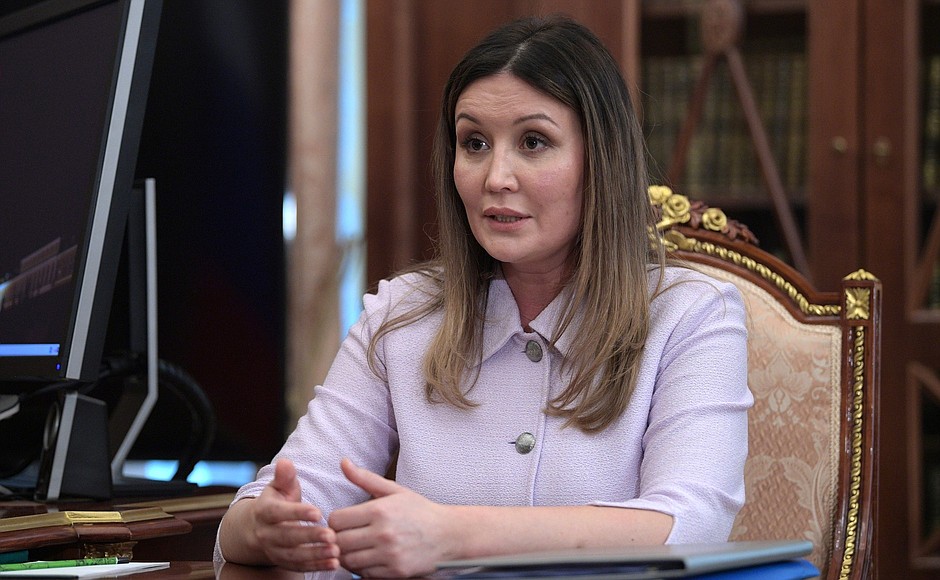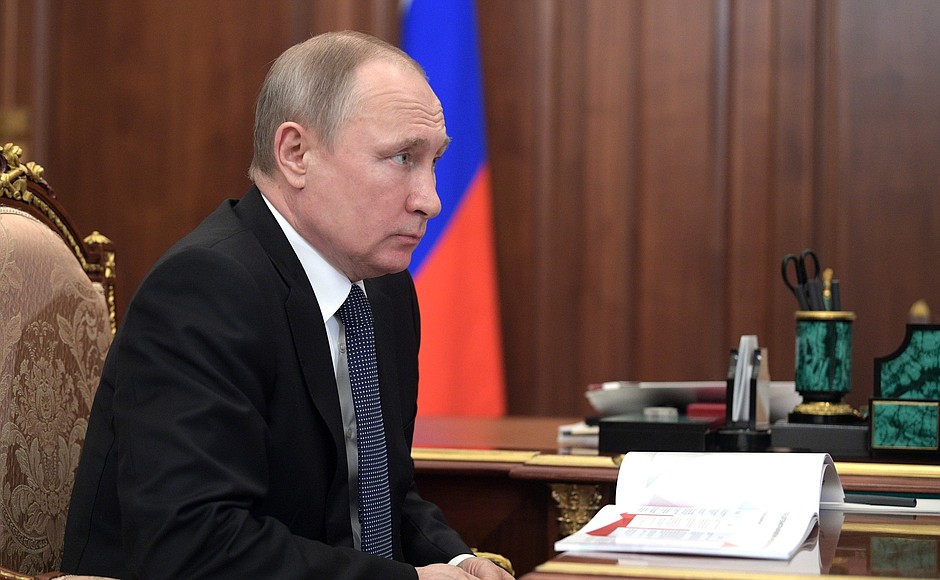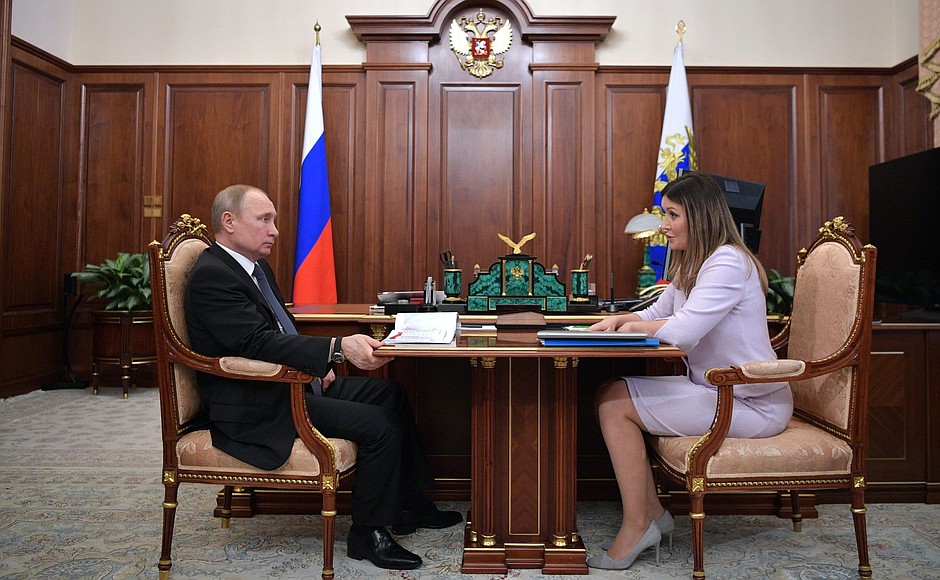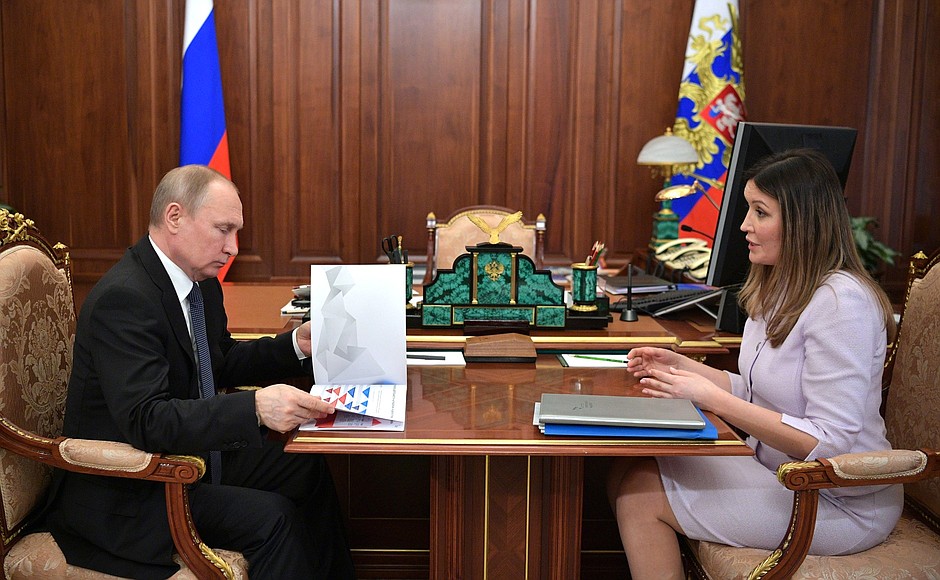President of Russia Vladimir Putin: Ms Chupsheva, the agency continues working in a wide range of areas, including providing support to entrepreneurs, improving the business climate and promoting social projects. I know that you want to tell me about some new directions that you consider a current priority. Go ahead, please.
General Director of the Agency for Strategic Initiatives Svetlana Chupsheva: Mr President, we have decided on the main areas of work that you outlined in your Address to the Federal Assembly. The agency has the competence, methods and projects that can be used in personnel training and to ensure the technological breakthrough that we must make in the country.
This includes the National Technology Initiative project and the WorldSkills movement aimed at training young professionals. We see our main task in working more closely with the regions, because it is where we are shaping the environment and the community of people who are ready to implement such projects.
As for regional development, we believe that creating a friendly urban environment is a priority there; you also mentioned it in your Address. We are ready to form 1,000 project teams in Russia within the next 3–4 years to deal with urban improvement and with creating points of attraction.
You have been to Petrozavodsk: Tochka Kipeniya is a platform that allows residents and proactive people to initiate and participate in urban development projects.

We have successful experience in Penza Region, where we implemented such a project together with Rosatom in the town of Zarechny. It was in fact a sort of standard that can be applied in all municipalities, and it is also important in personnel training.
In terms of a technology breakthrough, we have already established a project office for the Russian Venture Company with a view to implementing roadmaps within the National Technology Initiative. We also launched an Olympiad for the National Technology Initiative and a network of hobby clubs.
We are ready to help technological startups boost their development; work with corporations and industrial companies to ensure that there is demand for what startups will make. In fact, we intend to assist startups in promoting their products and joining major technology projects in the industrial and manufacturing sectors. This could be referred to as the “national innovation standard.”
In terms of the Agency’s development strategy, we expect as many as 1,000 companies to be involved in these operations in the near future with about 100 technological solutions. We are now creating a showcase of technology that can be implemented at both the regional and corporate levels.
Of course, social matters are an essential sector for the Agency for Strategic Initiatives. In your Address to the Federal Assembly, you highlighted the need to improve the quality and standard of life and promote active ageing for seniors.
Together with Sberbank, Vnesheconombank and a number of charity foundations, we are about to draft a new project regarding long-term care solutions for the elderly and promoting active ageing.

We have already selected six pilot regions ready to implement this model. What is this all about? This is a new approach to elderly care that covers both inpatient and outpatient facilities.
What matters most is that we are about to create active ageing hubs where people will be able to benefit from the rehabilitation programmes they need, attend cultural activities, interesting social adaptation programmes and receive counselling support.
These hubs will be just as new and cutting-edge as the technology parks for children where they can enjoy themselves and work in teams. We want to offer the elderly the same opportunities so that they continue to feel relevant, needed and lead an active lifestyle, and socialise with friends, colleagues and partners.
We expect this project to be implemented within three years across the country by attracting private investment in social infrastructure development. Most importantly, as you said at the State Council meeting on competitiveness, we definitely need to attract private providers, train them and develop adequate quality assessment standards. The ultimate purpose of this initiative is to provide a quality service so that everyone who needs it can get it in any region.
Education and training manufacturing sector employees is also a key priority for us. You have supported the scaling project. All 85 regions will have joined this work by the end of this year. In fact, the governor develops a staff training strategy based on the demand of enterprises and the investment projects implemented in the region. All learning institutions ranging from secondary schools to higher educational institutions, which operate based on economic priorities of a particular region, are involved in this work.
We have launched a project called Future Employees for the Regions. This year, there are six pilot regions. I think that all 85 regions will be ready to take part in it starting next year. In each region, we will choose 500 goal-oriented and highly motivated children who take part in subject Olympiads, former Sirius students, or children who want to become Sirius students.

Vladimir Putin: What are these regions?
Svetlana Chupsheva: Tula, Tyumen and Moscow regions, Perm Territory and Tatarstan.
The screening process is underway, and we have received lots of applications. Children will be offered individual development programmes depending on their interests, be it mathematics, natural sciences or sport. We will form an interesting learning curve for them, group work formats, study shifts, etc.
We have made arrangements with Yelena Shmeleva, since the Sirius Centre is participating as a federal centre. All gifted children’s profiles will also be formed on the Sirius platform. In fact, the governors and we will know everything about the children, their talents and needs, their progress and mentors.
Here we bring together dual education, professional training, target groups and deferred employment contracts. The goal formed by the governors and the students is all about making a difference in our region. We want our voices to be heard, to participate in the life of the region, and to work in our region. We believe that we will be able to achieve this goal within this project.
Vladimir Putin: Good.
<…>

